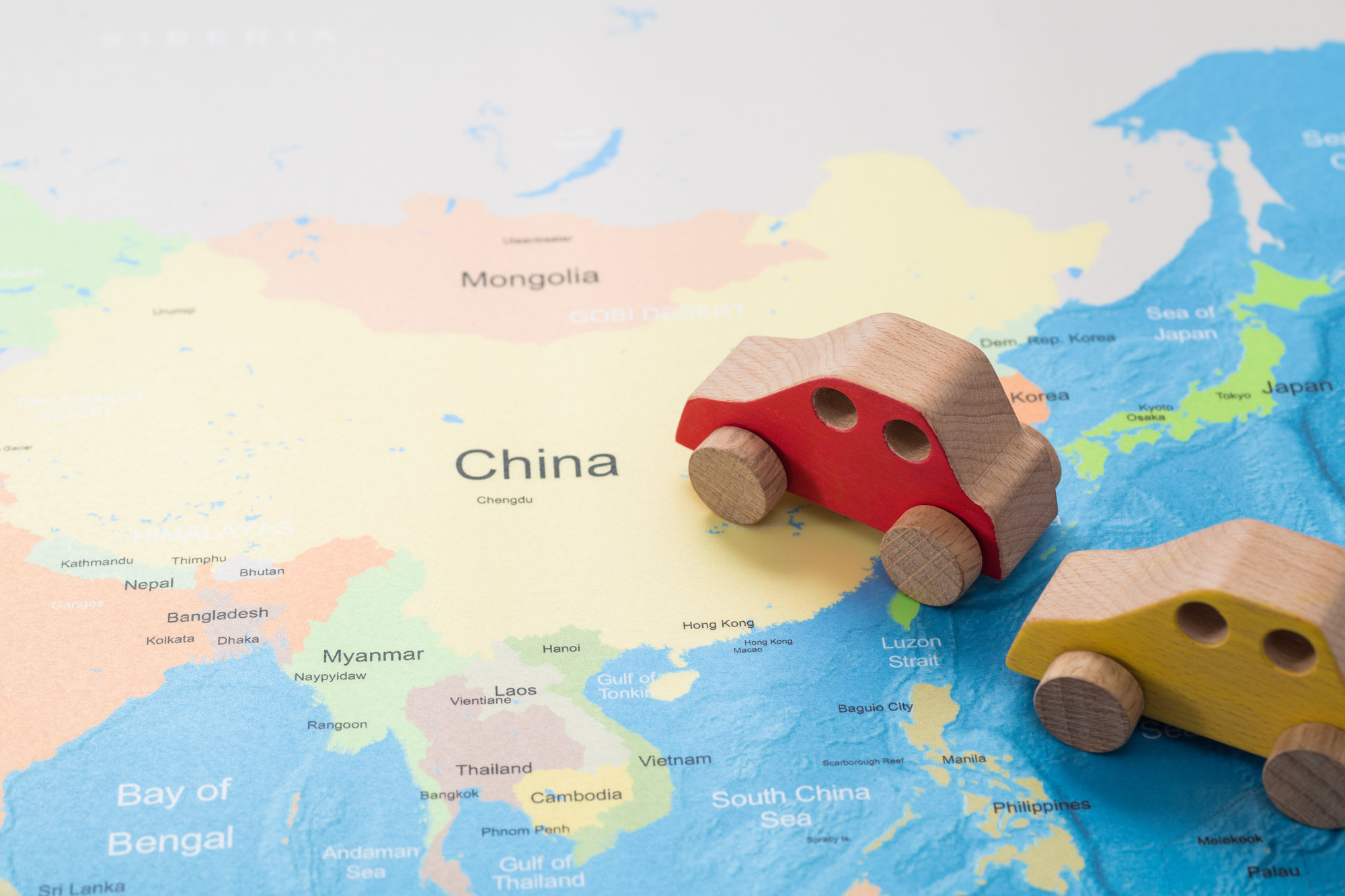2015/03/23
Miyuki Matsuzaki, "Challenges in the Operation of the Japan-US Alliance"
[PDF version] (The article appeared originally in Japanese in IIPS Quarterly, dated January 27, 2015).
The need to strengthen the Japan-US alliance
The security environment in the Asia-Pacific region
Although President Obama declared in a November 2014 speech delivered in Australia that the USA would continue its policy of rebalancing towards the Asia-Pacific region, the USA does not possess an abundance of security resources to allocate to the region. Meanwhile, China continues to ramp up its considerable defense spending and further develop its military capability. Within this security environment, if the USA is to maintain its status as a leader in the Asia-Pacific region, the cooperation of its alliance partners will be essential.
In the context of its assertions of its territorial rights, China has been using state agencies--including its military forces--to step up its operations in the East China Sea, the South China Sea, and the airspace above them, thus rendering Japan's security environment even more challenging. Hence, for Japan, too, cooperation with the USA is now more important than ever.
US defense strategy and Japanese defense policy
In its Quadrennial Defense Review (QDR) published in 2014, the USA asserted that the three pillars of its defense strategy are to "protect the homeland," "build security globally," and "project power and win decisively." The cooperation of the USA's alliance partners will be crucial to achieving the second and third of these strategic objectives.
The QDR states that "Even when we are at peace, U.S. forces cannot be everywhere all of the time," and adds that, without the presence of alliance nations, it will be difficult for the USA to "build security globally." After acknowledging that the "strengthening of power projection capabilities" is a priority for the US military, it cites "strengthening of relationships with alliance nations and partner nations" as one means for achieving this. As well as specifying "increase[d]...interoperability" and "help[ing] our allies and partners develop the capabilities most needed to defend themselves," the review goes on to state that the USA "will thoroughly reflect the...capacity of our allies and partners in our defense planning efforts."
As illustrated in the following section, Japan's Self-Defense Forces are working hard to increase interoperability and are developing the capabilities most needed to defend Japan. In addition, from the US perspective, the review of the "Guidelines for Japan-U.S. Defense Cooperation" that is currently in progress signals that the USA "will thoroughly reflect the...capacity of our allies and partners in our defense planning efforts."
Japan published the "National Defense Program Guidelines for FY 2014 and beyond" after its approval by the cabinet in 2013. It lists "Japan's Own Efforts," "[the] Strengthening of the Japan-U.S. Alliance," and "[the] Active Promotion of Security Cooperation" as being among the guidelines that will inform "Japan's Basic Defense Policy." This illustrates that Japan regards a strengthening of the Japan‑US alliance--premised on Japan's own efforts--as the cornerstone of Japanese defense policy.
Capabilities emphasized by the US military and the Japan Self-Defense Forces
In the 2014 QDR, the USA identifies "cyber"; "missile defense"; "nuclear deterrence"; "space"; "air/sea"; "precision strike"; "intelligence, surveillance, and reconnaissance (ISR)"; and "counter terror and special operations" as "key capability areas in support of our strategy."
Meanwhile, in the National Defense Program Guidelines approved in 2013, Japan lists ISR capabilities, intelligence capabilities, response to ballistic missile attacks, and responses in cyberspace and outer space (all with due consideration to the enhancement of joint functions, with a view to interoperability with the US military) as functions and capabilities that should be emphasized in the process of "strengthening [the] architecture of the Self-Defense Forces." For the most part, these coincide with the capabilities that the USA considers essential.
The Interim Report on the Review of the Guidelines for Japan-US Defense Cooperation lists "intelligence, surveillance, and reconnaissance," and "air and missile defense" among "measures to prevent the deterioration of Japan's security," so it would appear that, as the two nations each work separately to improve the capabilities that they regard as essential, they are also aiming to strengthen their cooperation in areas such as surveillance and missile defense.
Challenges in the operation of the Japan-US alliance
Although Japan and the USA are in accord over the need to strengthen the Japan-US alliance and over the course of action that this will require, there are still challenges involved in the operation of the alliance.
The engagement of US military forces in gray-zone emergencies in the vicinity of the Senkaku Islands
For Japan, one of the principal goals of strengthening the Japan-US alliance is to "ensure Japan's national security by maintaining and strengthening the US commitment to Japan and the Asia-Pacific region." It would appear that, in light of the current situation regarding the area around the Senkaku Islands, Japan would like the US commitment to include the participation of US armed forces in so-called "gray-zone emergencies"--contingencies that do not rise to the level of an armed attack--in the vicinity of the Senkaku Islands.
It can be presumed that, on this issue, Japan and the USA are each experiencing the two sides of the "alliance dilemma"--the fear of abandonment on the part of the former and the fear of entanglement on the part of the latter--and that reaching accord on their respective interests will be no easy matter. From Japan's point of view, there is a need to stipulate as clearly as possible what the respective operational roles and responsibilities of Japan's Self-Defense Forces and US military forces would be in a gray-zone contingency.
Responding to China's anti-access/area denial (A2/AD) strategy
China appears to be strengthening its asymmetrical military capability to prevent the access and deployment of other nations' military forces to the areas surrounding China, and to obstruct military operations in those areas--its so-called anti-access/area denial (A2/AD) capability.
Although dealing with China's A2/AD strategy represents a common challenge for Japan and the USA, the two nations--because of their different geographical proximity to China--are exhibiting somewhat differing degrees of enthusiasm in terms of their perception of A2/AD and of their views on how to deal with it. Specifically, the islands of Japan have been in China's sphere of operations since long before its A2/AD strategy came to the fore; in terms of countering China's strategy, Japan would not appear to have the option of moving itself out of range, as it would with other types of assets. For the USA, on the other hand, the A2/AD strategy represents an issue that has arisen only relatively recently--as demonstrated by the fact that it was first mentioned publicly in the 2010 QDR, in the context of air-sea battles--and it has likely thus prompted a much sharper spike in the USA's threat perception in comparison to that of Japan. There is significant wariness regarding anti-ship ballistic missiles (ASBMs), which are regarded as exercising particularly significant influence over the use of aircraft carriers, and it is thought that China's advances in its A2/AD capability have had an effect on US military operations that are based on the deployment of aircraft carriers.
Japan and the USA must attempt to reconcile their perceptions of China's A2/AD capability and must proceed with close consultations in order to avoid major differences in unit deployment policy--both in separate operations by the Self-Defense Forces and US military forces, and in joint operations involving forces from both nations.
Joint intelligence, surveillance, and reconnaissance (ISR) activities
The white paper entitled "Defense of Japan 2014" cites the expansion of joint ISR activities as one specific measure in line with the normal cooperation between Japan and the USA. However, it is also believed that Japan and the USA are possibly not completely in accord regarding the questions of which regions are of the highest concern and what the targets of protection should be--matters that also relate to the protection of assets (such as equipment), the protection of facilities and areas, and air and missile defense.
Also, the fact that there is limited sharing of intelligence between Japan and the USA regarding the situation on the Korean Peninsula gives rise to speculation that there are challenges to progress on joint Japan‑US ISR activities.
Joint Japan-US responses in space and cyberspace
As stated in the Interim Report on the Review of the Guidelines for Japan-US Defense Cooperation, Japan and the USA "share a commitment to strengthen stability and security in space and cyberspace." However, Japan has only just begun to embark on the use of space in the security sphere, and there is no denying that significant differences exist between Japan and the US military in terms of capabilities, infrastructure, and posture. The same types of issue are also believed to exist in relation to responses to cyberattacks.
As a result, immediate efforts relating to cooperation between Japan and the USA in space and cyberspace will likely focus on enhancing the capabilities of the Self-Defense Forces with a view to interoperability with the US military and with support from the USA.
Conclusion
From the point of view of both the US perception of the security environment and of the capabilities that are required to carry out the USA's defense strategy, Japan's importance as a US ally would seem to be increasing.
At a time when there are issues on which Japan and the USA do not necessarily share the same interests, Japan must, in its management of the Japan-US alliance, make the most of its status as a US ally in the Asia-Pacific region that is possessed of strong defense capabilities. "Japan's own efforts" will be vital if the alliance is to operate in the best possible manner for the nation--that is, it will be vital for Japan to retain an appropriate level of defense capability and to reinforce it.
The views expressed in this article are those of the author alone and do not represent the views of IIPS.





